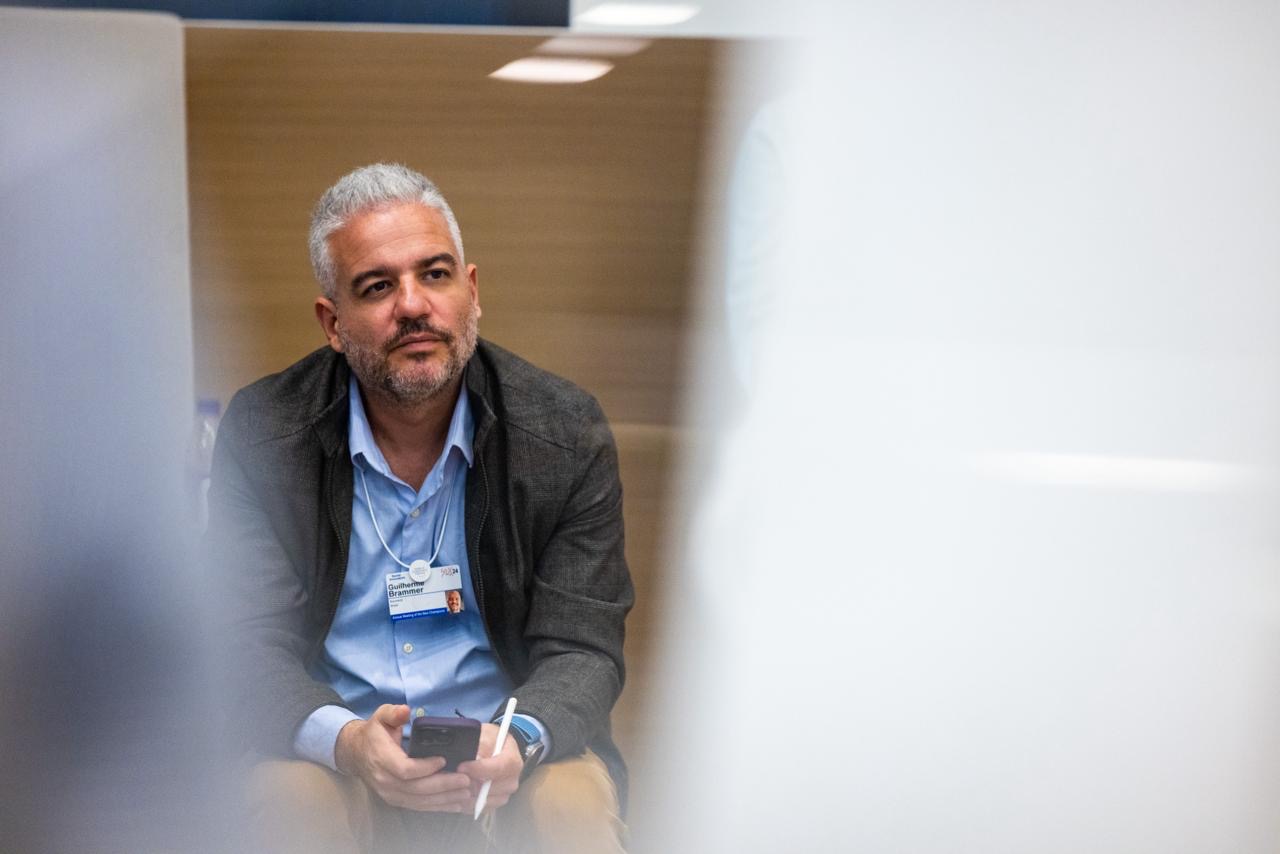Frustrated by the environmental impact of waste like cigarette butts, disposable diapers and espresso pods, Henrique Guilherme Brammer Junior started looking for technological solutions. Convinced that there had to be ways to use not only recyclable waste but also more hard-to- recycle products, Henrique founded Wisewaste in 2011 and renamed it Boomera in 2017.
The company created a methodology called the Circular Pack, which gains scale and impact by turning waste into a line of products with a cause, bringing together technology, design, science and social inclusion.
Boomera is based in Brazil, where only 3% of waste is recycled. In the country’s largest cities, every citizen produces about 1.2 kg of waste per day and 41% of it ends up in rubbish dumps. Boomera (then Wisewaste) set about creating answers to this problem. It has engineered a recycling option for BOPP, a type of plastic film used in the packaging industry, developed an industrial tarpaulin five times more resistant than traditional tarpaulin and is researching ways to reuse coffee pods to create an alternative plastic resin, as well
as to turn disposable diapers into garbage pails and coat hangers. Boomera has also established partnerships with major customers like Procter & Gamble, Adidas, Braskem, Natura and Nestlé to find environmentally friendly solutions for their waste.
With over 120 employees, Boomera is based on a circular economy business model that brings together industry, academia and environmental agents. In 2020, Boomera was chosen by Plug and Play as the startup of June. Regarded as the biggest startup accelerator in Silicon Valley, Plug and Play celebrates innovative solutions for technology, environment and society as a whole. It has been recognised by the World Economic Forum and Entrepreneur magazine, as well as by startups, as making America more sustainable. The company has also been recognised with numerous honours and awards for work as an entrepreneur in sustainable development.
After successfully leading Boomera to its current position, Guilherme sold the company to a large group in Brazil. Following this transition, he accepted an invitation to join the World Economic Forum Fellowship Programme.His work focuses on advancing the COP 30 agenda in Brazil in collaboration with the team at the Centre for Nature and Climate.
This feature is from our GEM Sustainability and Entrepreneurship Report. We thank the Schwab Foundation, one of our report sponsors, for providing this material and helping to put our data in a real-world context.

